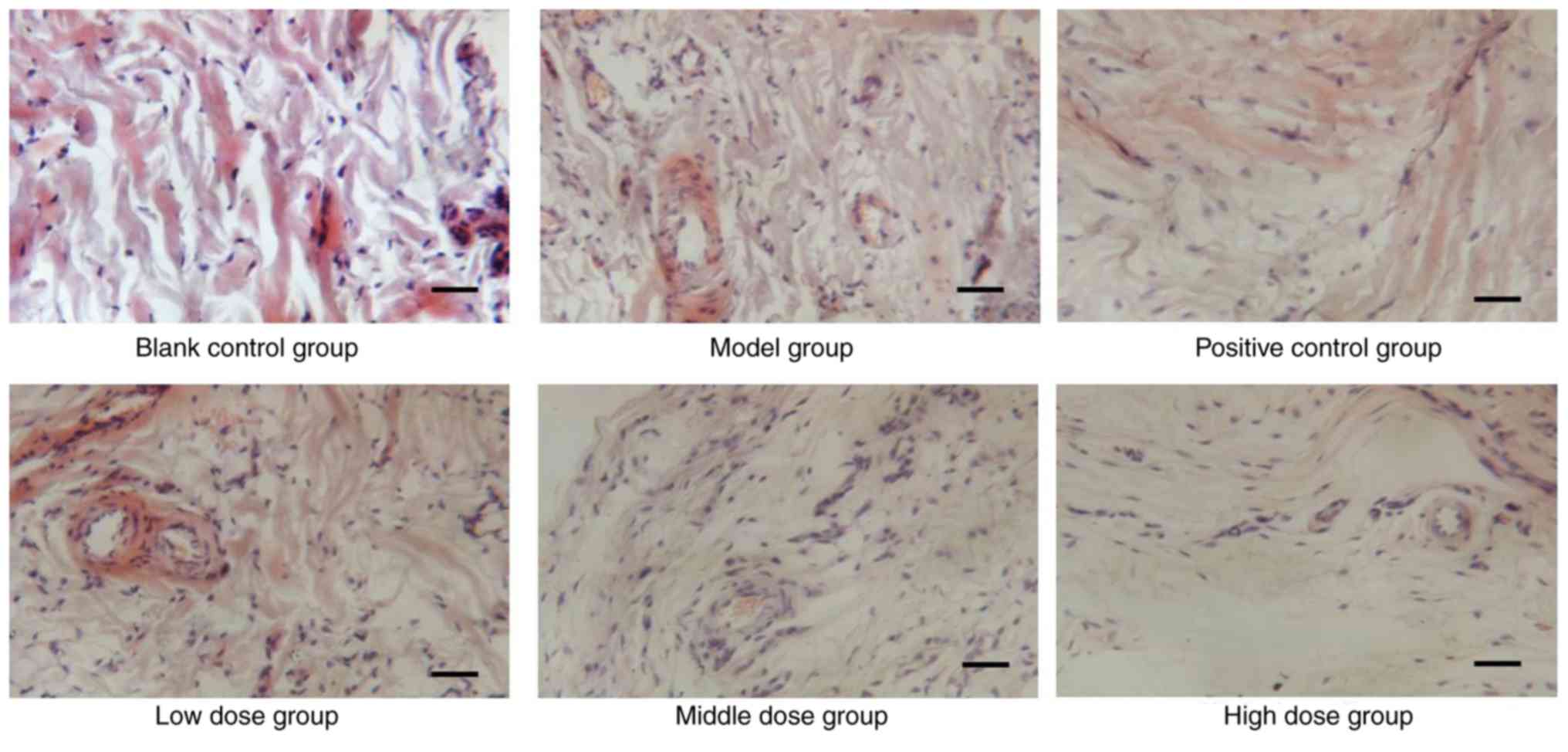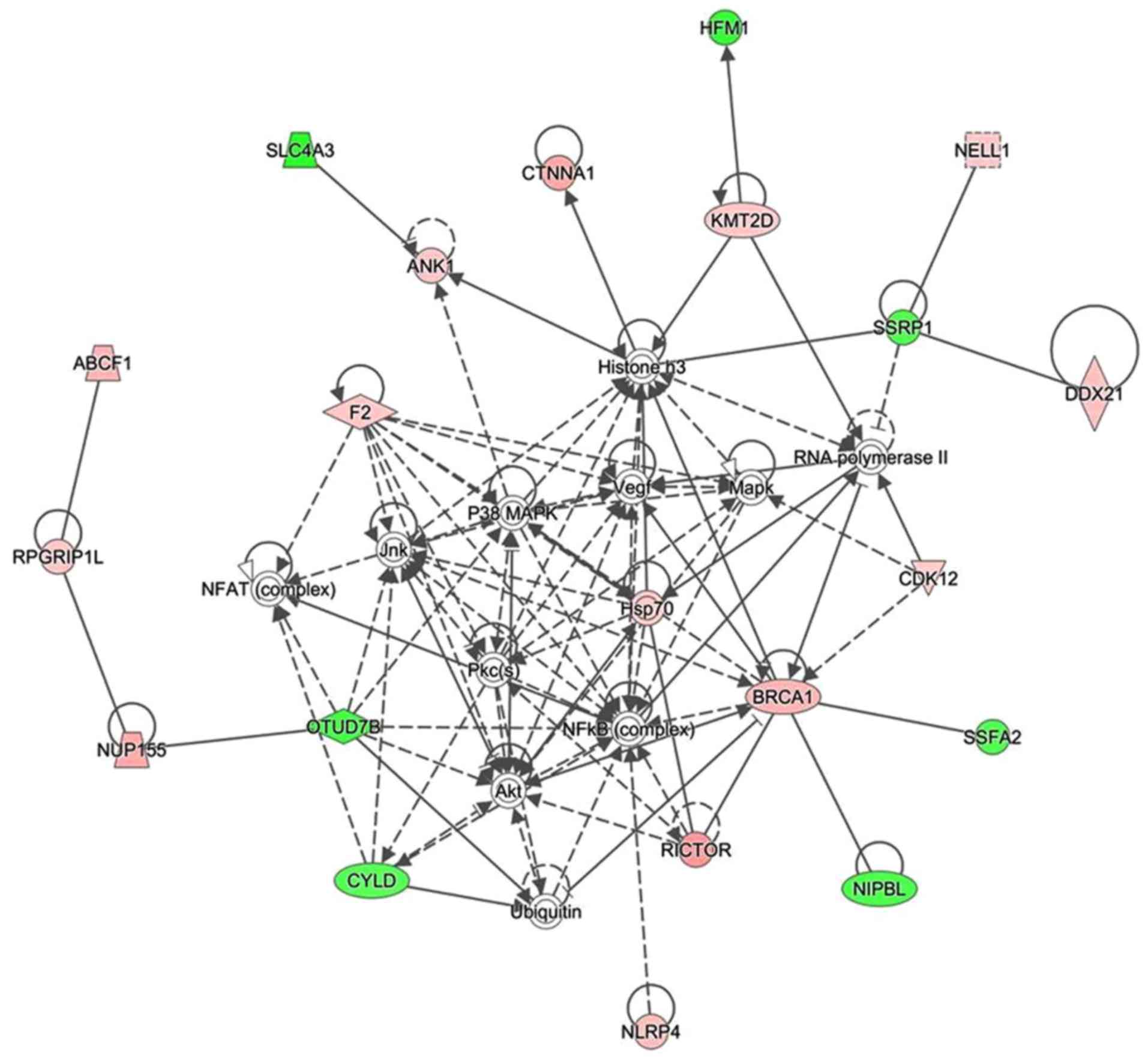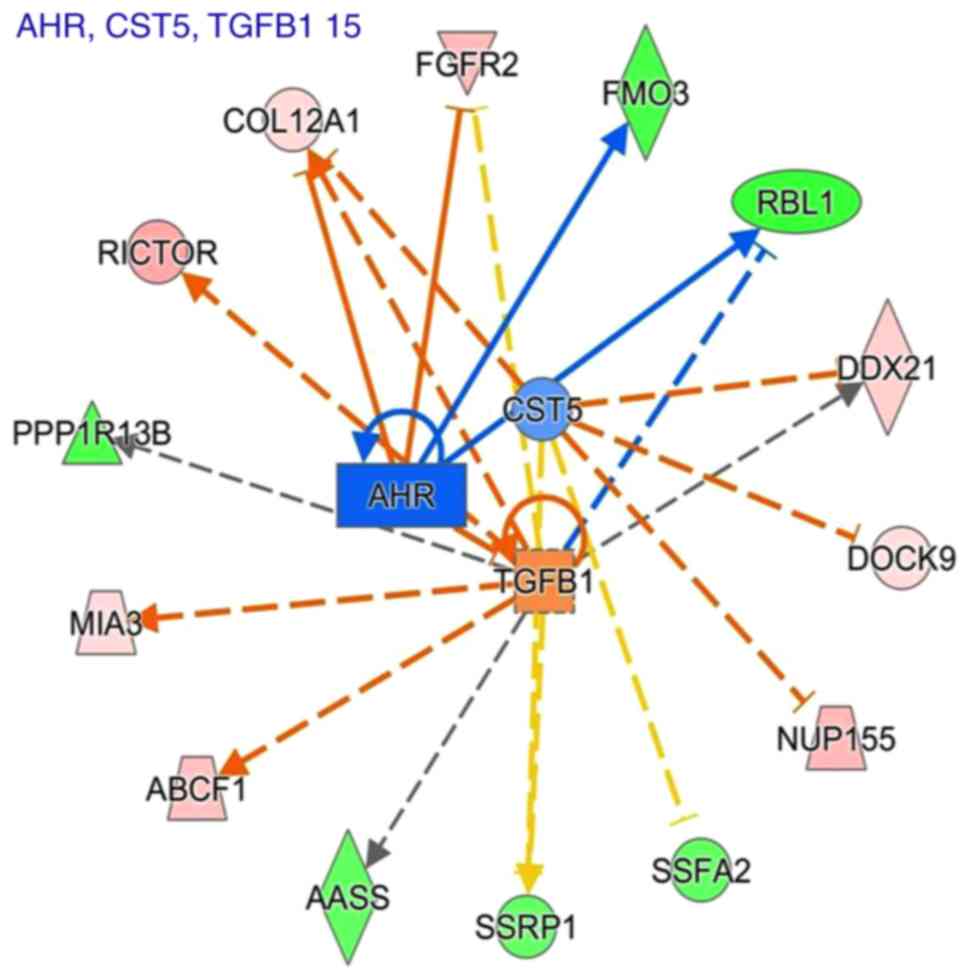|
1
|
Gu X, Gu B, Lv X, Yu Z, Wang R, Zhou X,
Qiao W, Mao Z, Zuo G, Li Q, et al: 1, 25-dihydroxy-vitamin D3 with
tumor necrosis factor-alpha protects against rheumatoid arthritis
by promoting p53 acetylation-mediated apoptosis via Sirt1 in
synoviocytes. Cell Death Dis. 7:e24232016. View Article : Google Scholar : PubMed/NCBI
|
|
2
|
Boissier MC, Semerano L, Challal S,
Saidenberg-Kermanac'h N and Falgarone G: Rheumatoid arthritis: From
autoimmunity to synovitis and joint destruction. J Autoimmun.
39:222–228. 2012. View Article : Google Scholar : PubMed/NCBI
|
|
3
|
Burmester GR, Bijlsma JWJ, Cutolo M and
McInnes IB: Managing rheumatic and musculoskeletal diseases - past,
present and future. Nat Rev Rheumatol. 13:443–448. 2017. View Article : Google Scholar : PubMed/NCBI
|
|
4
|
Wang Y, Fang Y, Huang W, Zhou X, Wang M,
Zhong B and Peng D: Effect of sinomenine on cytokine expression of
macrophages and synoviocytes in adjuvant arthritis rats. J
Ethnopharmacol. 98:37–43. 2005. View Article : Google Scholar : PubMed/NCBI
|
|
5
|
Qian L, Xu Z, Zhang W, Wilson B, Hong JS
and Flood PM: Sinomenine, a natural dextrorotatory morphinan
analog, is anti-inflammatory and neuroprotective through inhibition
of microglial NADPH oxidase. J Neuroinflammation. 4:232007.
View Article : Google Scholar : PubMed/NCBI
|
|
6
|
Zhou B, Lu X, Tang Z, Liu D, Zhou Y, Zeng
P and Xiong H: Influence of sinomenine upon mesenchymal stem cells
in osteoclastogenesis. Biomed Pharmacother. 90:835–841. 2017.
View Article : Google Scholar : PubMed/NCBI
|
|
7
|
Zhang HC, Liu MX, Wang EP, Lin Z, Lv GF
and Chen X: Effect of sinomenine on the expression of rheumatoid
arthritis fibroblast-like synoviocytes MyD88 and TRAF6. Genet Mol
Res. 14:18928–18935. 2015. View Article : Google Scholar : PubMed/NCBI
|
|
8
|
Chen XM, Huang RY, Huang QC, Chu YL and
Yan JY: Systemic review and meta-analysis of the clinical efficacy
and adverse effects of zhengqing fengtongning combined with
methotrexate in rheumatoid arthritis. Evid Based Complement
Alternat Med. 2015:9103762015. View Article : Google Scholar : PubMed/NCBI
|
|
9
|
Xu M, Liu L, Qi C, Deng B and Cai X:
Sinomenine versus NSAIDs for the treatment of rheumatoid arthritis:
A systematic review and meta-analysis. Planta Med. 74:1423–1429.
2008. View Article : Google Scholar : PubMed/NCBI
|
|
10
|
Wang Q and Li XK: Immunosuppressive and
anti-inflammatory activities of sinomenine. Int Immunopharmacol.
11:373–376. 2011. View Article : Google Scholar : PubMed/NCBI
|
|
11
|
Kumar A and Snyder M: Protein complexes
take the bait. Nature. 415:123–124. 2002. View Article : Google Scholar : PubMed/NCBI
|
|
12
|
Wepf A, Glatter T, Schmidt A, Aebersold R
and Gstaiger M: Quantitative interaction proteomics using mass
spectrometry. Nat Methods. 6:203–205. 2009. View Article : Google Scholar : PubMed/NCBI
|
|
13
|
Pflieger D, Gonnet F, de la Fuente van
Bentem S, Hirt H and de la Fuente A: Linking the
proteins-elucidation of proteome-scale networks using mass
spectrometry. Mass Spectrom Rev. 30:268–297. 2011. View Article : Google Scholar : PubMed/NCBI
|
|
14
|
Gollapalli K, Ghantasala S, Kumar S,
Srivastava R, Rapole S, Moiyadi A, Epari S and Srivastava S:
Subventricular zone involvement in Glioblastoma-A proteomic
evaluation and clinicoradiological correlation. Sci Rep.
7:14492017. View Article : Google Scholar : PubMed/NCBI
|
|
15
|
Ray S, Patel SK, Venkatesh A, Chatterjee
G, Ansari NN, Gogtay NJ, Thatte UM, Gandhe P, Varma SG, Patankar S
and Srivastava S: Quantitative proteomics analysis of plasmodium
vivax induced alterations in human serum during the acute and
convalescent phases of infection. Sci Rep. 7:44002017. View Article : Google Scholar : PubMed/NCBI
|
|
16
|
Noh R, Park SG, Ju JH, Chi SW, Kim S, Lee
CK, Kim JH and Park BC: Comparative proteomic analyses of synovial
fluids and serums from rheumatoid arthritis patients. J Microbiol
Biotechnol. 24:119–126. 2014. View Article : Google Scholar : PubMed/NCBI
|
|
17
|
Cheng Y, Chen Y, Sun X, Li Y, Huang C,
Deng H and Li Z: Identification of potential serum biomarkers for
rheumatoid arthritis by high-resolution quantitative proteomic
analysis. Inflammation. 37:1459–1467. 2014. View Article : Google Scholar : PubMed/NCBI
|
|
18
|
Yanagida M, Kawasaki M, Fujishiro M, Miura
M, Ikeda K, Nozawa K, Kaneko H, Morimoto S, Takasaki Y, Ogawa H, et
al: Serum proteome analysis in patients with rheumatoid arthritis
receiving therapy with tocilizumab: An anti-interleukin-6 receptor
antibody. Biomed Res Int. 2013:6071372013. View Article : Google Scholar : PubMed/NCBI
|
|
19
|
Brand DD, Latham KA and Rosloniec EF:
Collagen-induced arthritis. Nat Protoc. 2:1269–1275. 2007.
View Article : Google Scholar : PubMed/NCBI
|
|
20
|
Jones-Bolin S: Guidelines for the care and
use of laboratory animals in biomedical research. Curr Protoc
Pharmacol Appendix 4: Appendix 4B. 2012. View Article : Google Scholar
|
|
21
|
Feng L, Huang Q, Huang Z, Li H, Qi X, Wang
Y, Liu Z, Liu X and Lu L: Optimized animal model of
cyclophosphamide-induced bone marrow suppression. Basic Clin
Pharmacol Toxicol. 119:428–435. 2016. View Article : Google Scholar : PubMed/NCBI
|
|
22
|
Safaei F, Mehrzadi S, Haghighian Khadem H,
Hosseinzadeh A, Nesari A, Dolatshahi M, Esmaeilizadeh M and
Goudarzi M: Protective effects of gallic acid against
methotrexate-induced toxicity in rats. Acta Chir Belg. 25:1–9.
2017.
|
|
23
|
Yang H, Jiang C, Chen X, He K and Hu Y:
Protective effects of sinomenine against LPS-induced inflammation
in piglets. Microb Pathog. 110:573–577. 2017. View Article : Google Scholar : PubMed/NCBI
|
|
24
|
Butler MG, Dasouki MJ, Zhou XP,
Talebizadeh Z, Brown M, Takahashi TN, Miles JH, Wang CH, Stratton
R, Pilarski R and Eng C: Subset of individuals with autism spectrum
disorders and extreme macrocephaly associated with germline PTEN
tumour suppressor gene mutations. J Med Genet. 42:318–321. 2005.
View Article : Google Scholar : PubMed/NCBI
|
|
25
|
Franke TF: PI3K/Akt: Getting it right
matters. Oncogene. 27:6473–6488. 2008. View Article : Google Scholar : PubMed/NCBI
|
|
26
|
Sugiura Y, Niimi T, Sato S, Yoshinouchi T,
Banno S, Naniwa T, Maeda H, Shimizu S and Ueda R: Transforming
growth factor beta1 gene polymorphism in rheumatoid arthritis. Ann
Rheum Dis. 61:826–828. 2002. View Article : Google Scholar : PubMed/NCBI
|
|
27
|
Nguyen NT, Nakahama T, Nguyen CH, Tran TT,
Le VS, Chu HH and Kishimoto T: Aryl hydrocarbon receptor antagonism
and its role in rheumatoid arthritis. J Exp Pharmacol. 7:29–35.
2015.PubMed/NCBI
|
|
28
|
Suzuki E, Ochiai-Shino H, Aoki H, Onodera
S, Saito A, Saito A and Azuma T: Akt activation is required for
TGF-β1-induced Osteoblast differentiation of MC3T3-E1
pre-osteoblasts. PLoS One. 9:e1125662014. View Article : Google Scholar : PubMed/NCBI
|
|
29
|
Jo E, Park SJ, Choi YS, Jeon WK and Kim
BC: Kaempferol suppresses transforming growth factor-β1-induced
epithelial-to-mesenchymal transition and migration of A549 lung
cancer cells by inhibiting Akt1-mediated phosphorylation of Smad3
at Threonine-179. Neoplasia. 17:525–537. 2015. View Article : Google Scholar : PubMed/NCBI
|


















